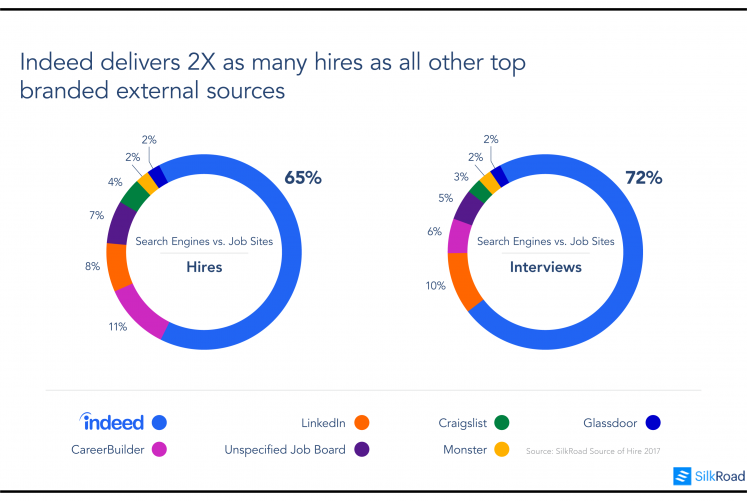The SPOTIO team recently had the opportunity to discuss recruiting and retaining sales talent with James Peuster, CEO of The Route Pro, a sales route consulting program that specializes in helping dry cleaning companies increase revenue by establishing a route service. James has nearly 20 years’ experience consulting and building dry cleaners across the country. He is a best-selling author and accomplished seminar speaker.
Don’t Be Stymied By a Stigma
According to Peuster, one of the most challenging parts of recruiting door-to-door sales talent for roles in dry-cleaning or similar industries is the stigma associated with the term “door-to-door sales.”
“When we first started advertising for door-to-door sales positions, we had two main issues,” Peuster said. “First, you would get responses from door-to-door junkies who love this kind of work but tend to hop from job to job looking for the next pot of gold.
According to Peuster, these candidates usually love door-to-door sales but are a risk for leaving the company after you invest in their onboarding.
“Second, you would see a lack in response because of a stigma associated with door-to-door, even though most people find after doing the job that it can be a rewarding and lucrative job.”
Peuster sought to avoid falling victim to the stigma by replacing the words “door-to-door” with phrases like “face-to-face” and “canvassing” in job postings.
“It’s not that we are trying to trick them or that we’re psychologically trying to fool them into taking a position,” Peuster said. “We want to make it known that there is a door-to-door aspect but there is more to the job.”
According to Peuster, in the dry-cleaning industry and other similar industries, door-to-door sales in not a job, it’s just one responsibility that’s part of a job. With the help of smart prospecting tools like those offered by SPOTIO, traditional door-to-door sales is less common.
“Sometimes it’s just ‘door’ sales because it’s not walking up to one door after the next, but instead canvassing only those with qualified leads.
By eliminating the term “door-to-door” from job postings, Peuster finds that he’s able to reach more candidates who wouldn’t have realized this role is a good fit for their skills and career.
Smart Talent Sourcing
According to Peuster, technology offered by platforms like Indeed.com have changed the game for talent sourcing.
“Indeed has a head-hunting program that allows you to turn around traditional recruiting,” Peuster said. “Instead of traditional recruiting where you post a job and wait for applicants, it allows you to set parameters and alerts you when candidates who meet your parameters update their resume or create a profile.”

According to Peuster, this functionality provides him with a daily pipeline of qualified candidates. Since you’re looking at candidates who just updated their resume, you can also assume they’re eager to find a job.
Another strategy Peuster uses is to recruit from similar industries that are not necessarily an obvious fit.
“We don’t just look at people who have experience in door-to-door; we look at those with similar experiences, like those working in high-end retail,” Peuster said. “These are people who have that special gift of selling, they like to talk, and they don’t have issues with rejection.”
While it may seem obvious to target those with experience in the same kind of role, it can be more fruitful in the long-term to find the right candidate and train them on the specifics of the job. Peuster also advises his clients to not always go for the obvious candidates.
“One of the best salespeople I’ve seen in the industry is introverted and shy,” he said. “So instead of trying to force him into a box, we trained him to do an introvert-type of sale.
“If you find someone who has the willingness to do the job, you can teach them how to sell in her or his own way. That way they have a sales strategy that works for them and they are connecting with customers versus selling.”
Retaining Talent

If a new employee fails, Peuster says that it’s rarely the fault of the employee. “I blame the situation or the onboarding,” he said.
According to Peuster, keeping good people is easy if you’re willing to invest properly in their onboarding and development.
“A lot of times people – when they hire staff – they look at it as a cost (labor cost) instead of as an investment,” Peuster said. “I encourage my clients to look instead at the ROI of great talent.
“Are they making you money, saving you money, or costing you money?” Peuster asked rhetorically.
According to Peuster, if they’re making you money or saving you money, they are worth investing in as their growth will only improve their results for your sales organization
“Very rarely do I hear people say, ‘How much can I grow my company with a great salesperson?’” Peuster said. “But this is the way you have to look at it.
“Often times people let good salespeople go because they think they are expensive and that they’re costing them money – then they see their sales drop and wonder why.”
Peuster encourages his clients to measure and track performance in a way that helps in understanding the value a salesperson is providing the company.
An Outside Perspective
Peuster offers one more recruiting tip: Get an outside perspective.
According to Peuster, too often when people are trying to recruit, they have a picture-perfect description in their head of the person they think they need. Because of this, they miss great candidates, or worst, they favor candidates with good energy but obvious gaps.
“They think they know what they’re looking for which causes them to overlook less obvious candidates with true potential,” Peuster said. “If you bring in an outside perspective from someone who is not emotionally invested in the process, you’re more likely to get an objective point of view.”
Peuster mentions that this is a great way to see less obvious traits like a willingness to learn and improve, the desire to move up in the company, or simply the willingness to do the job well. He also focuses on positive interview questions that allow the candidates to demonstrate their potential and avoids questions that are intended to uncover negative traits in the candidate.
“I focus less on trying to source the perfect candidate and more on how to develop people into what you need them to be,” Peuster said. “Sometimes when you invest correctly in someone who seems like an average candidate, you end up with amazing talent.”

James Peuster
The Route Pro
_____
Questions or comments? Contact SPOTIO at [email protected] or comment below.
SPOTIO is the #1 sales enablement and territory management app to increase your revenue, maximize your profitability, and increase your team’s productivity in just 2 weeks.
Want to see a product demonstration? Click here to see how SPOTIO can take your sales game to the next level.


